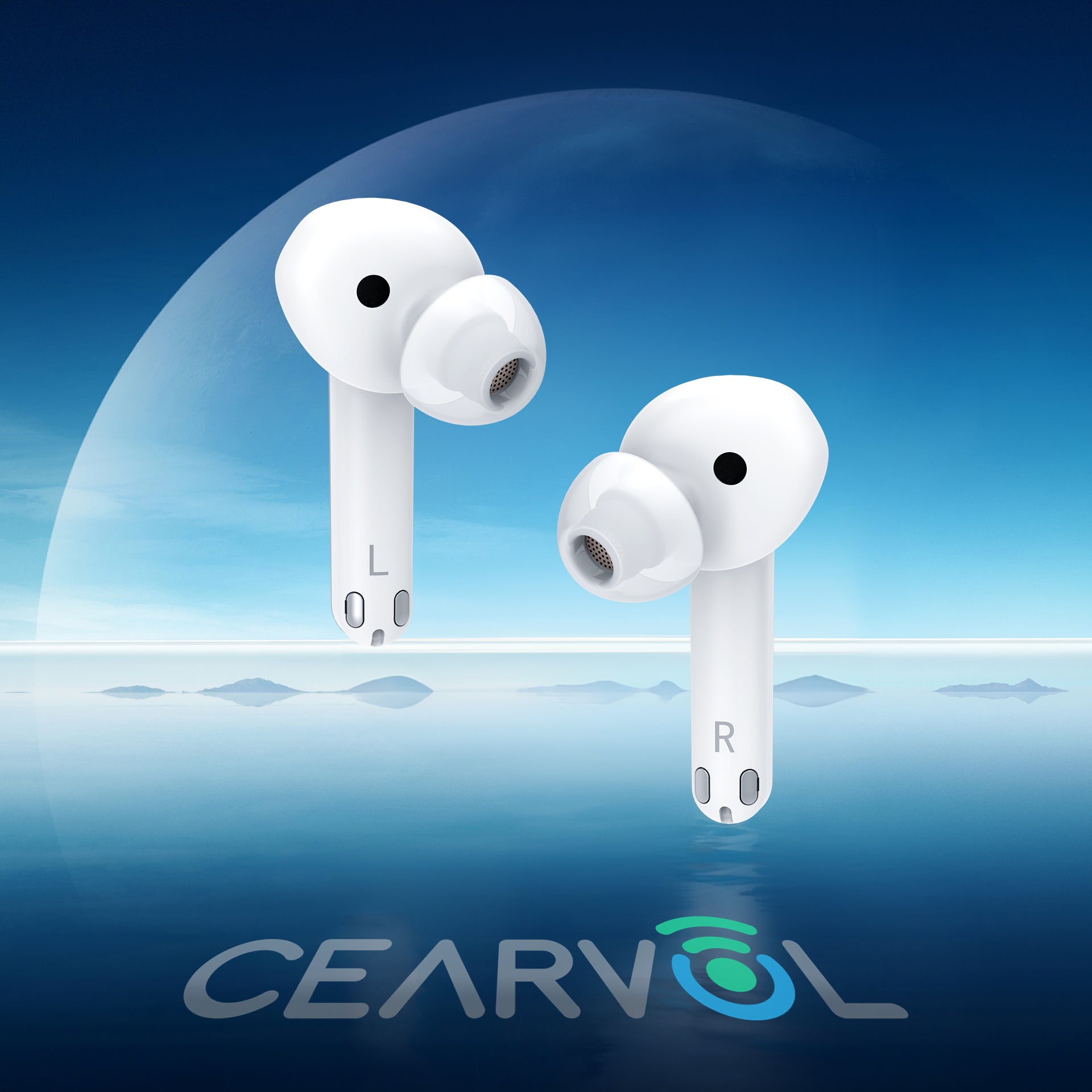We've all experienced that mysterious ringing or "buzzing" in our ears and thought, "Is this normal?" In our previous article, we discussed the basics of tinnitus and hearing aids. Today, I'd like to take a deeper dive with you—specifically into how a pinched nerve in the neck might affect your hearing. Can it really lead to symptoms like tinnitus? Let's explore this together and find out!
🚀 Navigate This Post
- ➤ Part 1: What Is a Pinched Nerve?
- ➤ Part 2: Symptoms of a Pinched Nerve
- ➤ Part 3: Causes of Pinched Nerves
- ➤ Part 4: Can a Pinched Nerve Cause Ringing in the Ear?
- ➤ Part 5: Treatment for Pinched Nerves (and That Ringing!)
- ➤ Part 6: Why That "Ear Fullness Neck Tightness" Matters
- ➤ Part 7: Life Tips Alternative Strategies
You may also be interested in:
Part 1: What Is a Pinched Nerve?
When a nerve in your neck gets squeezed—by a herniated disc, bone spur, or tight muscles—it disrupts signals traveling to your arm, shoulder… even your ear. This condition is called cervical radiculopathy. Often, people blame the neck without realizing their ear fullness neck tightness and ringing are tied to it.

Real‑Life Example
Take Mr. Jacobs, 68. He bent to pick up his grandchild and suddenly felt a sharp zing in his neck. Soon after, he noticed a whooshing in his ear and dull tightness around his throat. That sensation wasn't an ear infection—it was his neck nerve crying out.
Summary: A pinched nerve can cause numbness, pain, and yes—even ear sensations—because of proximity to the auditory nerves.
Part 2: Symptoms of a Pinched Nerve
Let's break down the signs you shouldn't ignore:
- Numbness or Tingling down your arm or into your fingers.
- Burning or Sharp Pain, often shooting.
- Muscle Weakness—objects feel heavier, arms feel wobbly.

- Ear Symptoms: that nagging ear fullness neck tightness, pressure or mild ringing in the ear
- Neck stiffness—especially after improper sleeping posture or a sudden movement.
So yes, can pinched nerve cause tinnitus? Symptoms often include ear disturbances because the neck and ear share nerve and muscle links.
Part 3: Causes of Pinched Nerves
Why does this happen? Here are the usual culprits:
- Degenerative spine changes like bone spurs or disc herniation
- Poor posture, especially forward head posture—desk workers beware
- Trauma: car accidents, whiplash injuries
- Arthritis or rheumatoid conditions—bone and joint issues that crowd the spine
- Muscle tension in the neck, affecting ear function and contributing to pulsatile tinnitus
Part 4: Can a Pinched Nerve Cause Ringing in the Ear?
This is the million-dollar question. Can a pinched nerve cause tinnitus? Absolutely—and it's called cervical or cervicogenic tinnitus. It stems from disrupted signals between your cervical spine and the auditory pathways. Tight or misaligned vertebrae can irritate nerves or compromise blood flow to your ear.
Here's what happens:
- Compressed C2–C3 nerves affect dorsal cochlear neurons in the brainstem.
- Cramped neck muscles alter Eustachian tube function, causing that blocked feeling.
- Vascular pulsing through inflamed neck muscles can create a pulsing "whoosh"—heard as tinnitus

To dig deeper, check out this helpful post on hearing aids can help with tinnitus—because treating tinnitus is multi-faceted.
If you'd like a broader overview of tinnitus, here's a solid resource too.
Part 5: Treatment for Pinched Nerves (and That Ringing!)
Here's the action plan many specialists recommend:
1. Posture Stretching
Chin tucks, neck tilts, and sliding your head back—simple yet effective at easing pressure
2. Heat Ice
Heat first to relax, then ice to reduce inflammation—each 10–15 minutes.
3. Physical Therapy Neural Flossing
Exercises and gentle traction help mobilize the nerve and reduce pressure
4. TENS or Manual Therapy
Electrical nerve stimulation or massage to ease tight muscles and interrupt faulty signals

5. Support Aids Sleep Adjustments
Use cervical pillows or soft collars at night to maintain alignment.
6. Medical Intervention
NSAIDs, muscle relaxants, imaging, injections—and in rare cases, surgery may be needed
Part 6: Why That "Ear Fullness Neck Tightness" Matters
Recurring ear pressure and neck tightness aren't isolated—they're your body speaking. They're signals that something is off. And when other conditions like diabetes and tinnitus or arthritis join the mix, symptoms can compound.
If this resonates, don't wait. Early attention can prevent lasting damage or chronic tinnitus.
Part 7: Life Tips Alternative Strategies
Living with a pinched nerve—and the ear symptoms it may trigger—can be frustrating. But the good news is, small changes in your daily routine may relieve that annoying ear fullness neck tightness and even reduce tinnitus flare-ups. Over the years, I've recommended these simple but effective strategies to many of my patients, and they've made a real difference.
Here's what you can try starting today:
- Daily moves: chin tucks, rotates, gentle neural flossing.
- Self-massage or foam rollers on the neck/shoulder area.
- Stay hydrated, de-stress—tension tightens muscles.
- Stand desks or take posture breaks.
- Monitor blood sugar if diabetic—ticked nerves get aggravated easily.
Meanwhile, if the ringing is persistent, you might explore assistance from a quality hearing device like the Cearvol Diamond X1. It's not a cure—but by enhancing ambient sound, it can distract from tinnitus and lessen focus on it.

Diamond X1 - Best Hearing Aids with Bluetooth
Newcomer Price
$249.99 $309.99
- ✔ Adaptive sound modes for clear hearing.
- ✔ Bluetooth for calls & streaming.
- ✔ App-controlled, customizable adjustments.
- ✔ Rechargeable & fast charging.
- ✔ Ideal for mild to moderate hearing loss.
Conclusion
We've covered a lot today—from understanding how a pinched nerve can affect your body to answering the big question: can a pinched nerve cause tinnitus? The answer is yes, in some cases, especially when that nerve compression occurs near your neck and disrupts the auditory system.
While every case is unique, recognizing the signs early—like ear fullness, neck tightness, or tingling arms—can help you take meaningful steps before symptoms get worse. With proper posture, targeted exercises, and sometimes support tools like hearing aids, you can manage these symptoms effectively and get back to living comfortably.
If your tinnitus persists or worsens, don't hesitate to explore hearing solutions. Devices like the Cearvol Diamond X1have helped many of my patients stay connected to the world—and feel more in control of their hearing health.





Leave a comment
All comments are moderated before being published.
This site is protected by hCaptcha and the hCaptcha Privacy Policy and Terms of Service apply.